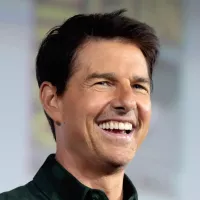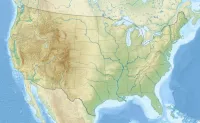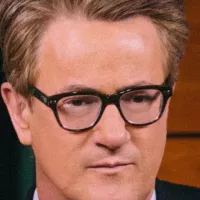Jamaica is an island country located in the Caribbean, south of Cuba and west of Hispaniola. It is the third-largest island in the Greater Antilles. With a population of approximately 2.8 million, it is the third most populous English-speaking country in the Americas. Kingston serves as the capital and largest city of Jamaica.
1907: Earthquake and fire in Kingston
In 1907, Jamaica was struck by an earthquake which, together with the subsequent fire, resulted in considerable destruction in Kingston and caused the deaths of between 800 and 1,000 people.
1912: Kahal Kadosh Shaare Shalom built
In 1912, Kahal Kadosh Shaare Shalom, the official and only Jewish place of worship left on the island, was originally built in Kingston.
1917: Marcus Garvey founds UNIA
In 1917, Marcus Garvey founded the Universal Negro Improvement Association and African Communities League.
1920: H. G. de Lisser began publishing Planters' Punch
In 1920, H. G. de Lisser began publishing the magazine Planters' Punch.
1926: British Army's West India Regiment ends its service.
In 1926, the British Army's West India Regiment ended its service.
1934: Strikes begin as part of the British West Indian labour unrest.
In 1934, Jamaica experienced numerous strikes as part of the British West Indian labour unrest.
1938: Strike turns into a riot.
Culminating in 1938, a strike turned into a riot.
1944: New House of Representatives established.
In 1944, a new House of Representatives was established, elected by universal adult suffrage.
1951: Hurricane Charlie hits Jamaica
In 1951, Hurricane Charlie directly hit Jamaica, causing major damage and many deaths.
1953: Roger Mais published The Hills Were Joyful Together
In 1953, Roger Mais published his novel The Hills Were Joyful Together.
1954: Roger Mais published Brother Man
In 1954, Roger Mais published his novel Brother Man.
1955: Roger Mais published Black Lightning
In 1955, Roger Mais published his novel Black Lightning.
1958: Jamaica becomes a province in the Federation of the West Indies
In 1958 Jamaica became a province in the Federation of the West Indies, a federation of several of Britain's Caribbean colonies.
1958: The West Indies Regiment was reformed
In 1958 The West Indies Regiment was reformed as part of the West Indies Federation, after dissolution of the Federation the JDF was established.
August 1962: Independence from the United Kingdom
In August 1962, Jamaica achieved independence from the United Kingdom.
August 1962: Jamaica attains full independence
In August 1962, after leaving the Federation, Jamaica attained full independence.
1962: Dr. No film location
In 1962, Jamaica was used as a filming location for the James Bond film Dr. No.
1962: Drafting of the current constitution
Jamaica's current constitution was drafted in 1962 by a bipartisan joint committee of the Jamaican legislature.
1962: Murder rate when Jamaica gained independence
When Jamaica gained independence in 1962, the murder rate was 3.9 per 100,000 inhabitants.
1967: JLP wins the general election
In the 1967 Jamaican general election, the JLP were victorious again, winning 33 out of 53 seats, with the PNP taking 20 seats.
1970: Marlon James Born
In 1970, the novelist Marlon James was born.
1972: Gross national product declined to some 25% below its 1972 level
By 1980, Jamaica's gross national product had declined to some 25% below its 1972 level
1972: PNP elected under Michael Manley
In 1972, the voters elected the PNP under Michael Manley. The PNP won 37 seats to the JLP's 16.
1973: Papillon film location
In 1973, Jamaica was used as a filming location for the film Papillon, starring Steve McQueen.
1976: PNP wins another landslide victory
In 1976, the PNP won another landslide, winning 47 seats to the JLP's 13.
1980: JLP wins election under Edward Seaga
In 1980 Jamaicans voted the JLP back in under Edward Seaga, the JLP winning 51 seats to the PNP's nine seats.
1980: JLP wins consecutive win
The last time a consecutive win occurred for the JLP was in 1980.
1983: Jamaica supports the US invasion of Grenada
In 1983, Edward Seaga sent troops to support the US invasion of Grenada.
1985: Strikes due to austerity measures
In 1985, austerity measures led to strikes.
1988: Hurricane Gilbert hits Jamaica
In 1988, Hurricane Gilbert directly hit Jamaica, causing major damage and many deaths.
1988: Cocktail film location
In 1988, Jamaica was used as a filming location for the film Cocktail, starring Tom Cruise.
1988: Hurricane Gilbert
In 1988, the Seaga government faced criticism for its response to the devastation caused by Hurricane Gilbert.
1989: PNP re-elected under Michael Manley
In 1989, Michael Manley and the PNP were re-elected, winning 45 seats to the JLP's 15.
1989: Michael Manley serves as Prime Minister
Michael Manley served as Prime Minister from 1989-1992.
1991: Government programme of economic liberalisation and stabilisation
Since 1991, the government of Jamaica has followed a programme of economic liberalisation and stabilisation by removing exchange controls, floating the exchange rate, cutting tariffs, stabilising the Jamaican dollar, reducing inflation and removing restrictions on foreign investment.
1992: Jamaica's first marine park established
In 1992, Jamaica established its first marine park in Montego Bay, covering nearly 15 square kilometres (5.8 sq mi).
1992: P.J. Patterson becomes Prime Minister
P.J. Patterson became Prime Minister from 1992-2005.
1993: Cool Runnings film location
In 1993, Jamaica was used as a filming location for the Disney comedy Cool Runnings, which is loosely based on the true story of Jamaica's first bobsled team.
1993: PNP wins general election led by Patterson
In the 1993 Jamaican general election, Patterson led the PNP to victory, winning 52 seats to the JLP's eight seats.
1994: Financial sector troubles
In 1994, the financial sector was troubled, with many banks and insurance companies suffering heavy losses and liquidity problems.
1996: Decrease in GDP
In 1996 there was a decrease in GDP largely due to significant problems in the financial sector.
January 1997: Establishment of the Financial Sector Adjustment Company (Finsac)
In January 1997, the government set up the Financial Sector Adjustment Company (Finsac) to assist troubled banks and companies.
January 1997: Negative Growth Rate in Agricultural Sector
Since January 1997, there was a period of a negative growth rate in agricultural sector, until 2001.
1997: Decrease in GDP due to a drought and hurricane
In 1997 there was a decrease in GDP due to a severe island-wide drought and hurricane that drastically reduced agricultural production.
1997: Patterson wins the general election
Patterson also won the 1997 Jamaican general election, by another landslide margin of 50 seats to the JLP's 10 seats.
January 1998: Increase in Bauxite production
January 1998 saw a bauxite production increase of 7.1% relative to January 1998.
December 1998: Increase in Bauxite and Alumina production
From January to December 1998, Bauxite and alumina production increased 5.5% compared to the corresponding period in 1997.
1998: Nominal GDP at approximately 8 percent
In 1998, nominal GDP was approximately a high of about 8 percent of GDP.
1998: Jamaica qualified for the FIFA World Cup
In 1998, the Jamaica national football team qualified for the FIFA World Cup.
1999: Visitor Arrivals in Jamaica
In 1999 the total visitor arrivals was 2 million, an increase of 100,000 from the previous year.
1999: Nominal GDP lowered
In 1999, nominal GDP lowered to 4½ percent of GDP.
1999: Portland Bight Protected Area designated
In 1999, the Portland Bight Protected Area was designated.
2000: Agricultural Production in 2000
Agricultural production was still an important engine of growth in 2000.
2000: Nominal GDP at 4½ percent
In 2000, nominal GDP was at 4½ percent of GDP.
2001: Religion Statistics based on the 2001 census
According to the 2001 census, the largest Protestant denominations are the Church of God (24%), Seventh-day Adventist Church (11%), Pentecostal (10%), Baptist (7%), Anglican (4%), United Church (2%), Methodist (2%), Moravian (1%) and Plymouth Brethren (1%). Catholics are just 2% of the population.
2001: Finsac divests restored banks and companies
From 2001, once Finsac had restored these banks and companies to financial health, it divested them.
2001: Increase in Agricultural Production
In 2001 agricultural production, an important engine of growth increased to 5.5% compared to the corresponding period in 2000.
2001: Digicel Granted Licence
In 2001, Digicel was granted a license to operate mobile services in the newly liberalised telecom market, which had previously been the sole domain of FLOW (then Cable and Wireless Jamaica).
2002: FLOW upgraded to GSM
In 2002, FLOW (formerly "LIME") upgraded to GSM after beginning with the TDMA standard.
2002: PNP retains power in the general election
Patterson's third consecutive victory came in the 2002 Jamaican general election, when the PNP retained power, but with a reduced seat majority of 34 seats to 26.
2003: Municipality of Portmore created
The newest city municipality is the Municipality of Portmore, created in 2003.
2004: Estimate of Jamaicans and Jamaican descendants living abroad
It was estimated in 2004 that up to 2.5 million Jamaicans and Jamaican descendants lived abroad.
2005: Marlon James published John Crow's Devil
In 2005, Marlon James published his novel John Crow's Devil.
2005: Opposition Leader calls for merger of the JDF and JCF
In early 2005, an Opposition leader, Edward Seaga, called for the merger of the JDF and JCF.
2005: P.J. Patterson term end as Prime Minister
P.J. Patterson term ended as Prime Minister in 2005.
February 2006: Portia Simpson-Miller becomes Prime Minister
On 26 February 2006, Portia Simpson-Miller replaced P.J. Patterson, becoming Jamaica's first female Prime Minister.
2006: FLOW Decommissioned TDMA
In 2006, FLOW decommissioned TDMA.
2006: Rugby League played in Jamaica
Since 2006, rugby league has been played in Jamaica.
2007: Hydrous ethanol to anhydrous ethanol process appeared uneconomic
As of 2007, the process to refine hydrous ethanol feedstock into anhydrous ethanol (0% water content) appeared to be uneconomic and the production plant was idle in Jamaica.
2007: JLP defeats PNP, Bruce Golding becomes Prime Minister
In 2007 the PNP was defeated by the JLP by a narrow margin of 32 seats to 28, ending 18 years of PNP rule, and Bruce Golding became the new prime minister.
2007: Jamaica was a venue of 2007 Cricket World Cup
In 2007, Jamaica was one of the venues of the Cricket World Cup.
2007: Survey by the Jamaican Language Unit
In 2007, a survey by the Jamaican Language Unit found that 17.1 percent of the population were monolingual in Jamaican Standard English (JSE), 36.5 percent were monolingual in Patois, and 46.4 percent were bilingual.
2007: Portia Simpson-Miller term end as Prime Minister
Portia Simpson-Miller term ended as Prime Minister in 2007.
2008: Jamaica won gold in the men's 4 x 100m
In 2008, Jamaica won gold in the men's 4 × 100 m.
2009: Murder rate in Jamaica
By 2009, the murder rate in Jamaica was 62 per 100,000 inhabitants, one of the highest in the world.
2009: LIME launched its 3G network
In 2009, LIME launched its 3G network in Jamaica.
2009: Marlon James published The Book of Night Women
In 2009, Marlon James published his novel The Book of Night Women.
2009: Patrick Allen becomes Governor-General
In 2009, Patrick Allen assumed the office of Governor-General of Jamaica.
2009: Continued expansion of alumina production
Through 2009, there were plans for continued expansion of alumina production by Alcoa.
2010: Digicel entered broadband market with WiMAX
In 2010, Digicel entered the broadband market in Jamaica by offering WiMAX broadband.
2010: Violence erupts during attempt to arrest Christopher Coke
In 2010, an attempt by Jamaican police and military to arrest drug lord Christopher Coke erupted in violence, resulting in over 70 deaths.
2010: Reported murders in Jamaica
In 2010, there were 1,447 reported murders in Jamaica.
April 2011: Limited passenger rail service resumes
On 13 April 2011, a limited passenger rail service was resumed between May Pen, Spanish Town and Linstead.
2011: Justin Masterson highest paid Jamaican athlete
According to ESPN, in 2011, Justin Masterson, starting pitcher for the baseball team Cleveland Indians in the United States, was the highest paid Jamaican professional athlete.
2011: Adherents to the Rastafari movement
According to the 2011 census, the Rastafari movement has 29,026 adherents, with 25,325 Rastafarian males and 3,701 Rastafarian females.
2011: Murder rate continued to fall
After 2011 the murder rate continued to fall, following the downward trend in 2010, after a strategic programme was launched.
2011: Andrew Holness replaces Bruce Golding as Prime Minister
In 2011 Bruce Golding resigned and was replaced by Andrew Holness.
2011: LIME's FTTH Deployment
In 2011, LIME deployed FTTH (Fibre to the Home) in selected communities in Jamaica.
2011: Claro Jamaica merged with Digicel Jamaica
In 2011, Oceanic, which became Claro Jamaica, merged with Digicel Jamaica.
2011: 2011 census responses breakdown
In 2011, the University of the West Indies released a breakdown of responses to the census.
2011: PNP returns to power, Portia Simpson-Miller becomes Prime Minister
In the 2011 Jamaican general election, Portia Simpson-Miller and the PNP returned to power, winning 42 seats to the JLP's 21.
2012: Decrease in murders reported by the Ministry of National Security
In 2012, the Ministry of National Security reported a 30 percent decrease in murders.
2014: Marlon James published A Brief History of Seven Killings
In 2014, Marlon James published A Brief History of Seven Killings.
2014: Cable and Wireless Communications acquired FLOW Jamaica
In late 2014, Cable and Wireless Communications, the parent company of LIME, acquired Flow Jamaica and replaced their brand LIME with FLOW.
2014: Digicel introduced Digicel Play
To further their broadband share post-LIME/FLOW merger, Digicel introduced a new broadband service called Digicel Play in 2014.
2015: Formal instruction in Patois offered in the Jamaican education system
Around 2015, the Jamaican education system began to offer formal instruction in Patois while retaining JSE as the "official language of instruction".
2015: A Brief History of Seven Killings won Man Booker Prize
In 2015, Marlon James's novel, A Brief History of Seven Killings, won the Man Booker Prize.
January 2016: Approval for Another Mobile Operator Licence
In January 2016, the Office and Utilities Regulations (OUR), Ministry of Science, Technology, Energy and Mining (MSTEM) and the Spectrum Management Authority (SMA) approved another mobile operator licence in Jamaica.
March 2016: Andrew Holness becomes Prime Minister
In March 2016, Andrew Holness became the Prime Minister of Jamaica.
May 2016: New Carrier Named
On 20 May 2016, the Jamaican Government named Symbiote Investments Limited, operating under the name Caricel, as the new mobile carrier.
2016: Suggestion to make Spanish Jamaica's second official language
In 2016, Prime Minister Andrew Holness suggested making Spanish Jamaica's second official language.
2016: Elaine Thompson double Olympic champion
In Rio 2016, Elaine Thompson became double Olympic champion in the 100 m and 200 m.
2016: JLP wins general election, Andrew Holness becomes Prime Minister
In the 2016 general election, Andrew Holness secured a narrow victory for the JLP, defeating Simpson-Miller's PNP. The PNP won 31 seats to the JLP's 32.
September 2017: Increase in stopover arrivals
In September 2017, Jamaica recorded a 41% increase in stopover arrivals from January to September 2017 over the same period from the previous year
2017: Jamaica signs the UN treaty on the Prohibition of Nuclear Weapons
In 2017, Jamaica signed the UN treaty on the Prohibition of Nuclear Weapons.
2017: Increase in murders over the previous year
In 2017, murders in Jamaica rose by 22% over the previous year.
July 2018: Population estimate of Jamaica
In July 2018, the estimated population of Jamaica was 2,812,000, mostly of African or partially African descent.
November 2018: Jamaica qualified for the Rugby League World Cup
In November 2018, the Jamaican rugby league team qualified for the Rugby League World Cup for the first time after defeating the USA and Canada.
2018: Increases in Agricultural Production Reported
In 2018, Jamaica reported a 7.9% increase in corn, 6.1% increase in plantains, 10.4% increase in bananas, 2.2% increase in pineapples, 13.3% increase in dasheen, 24.9% increase in coconuts, and a 10.6% increase in whole milk production.
2018: Jamaica represented the CARICOM Caribbean Community at the G20 and G7 annual meetings
In 2018, Jamaica represented the CARICOM Caribbean Community at the G20 and the G7 annual meetings.
2018: Jamaica won several World Travel Awards
In 2018, Jamaica won several World Travel Awards in Portugal winning the "Chairman's Award for Global Tourism Innovation", "Best Tourist Board in the Caribbean" "Best Honeymoon Destination", "Best Culinary Destination", "World's Leading Beach Destination" and "World's Leading Cruise Destination".
2019: Jamaica reported its lowest unemployment rate in 50 years
In 2019, Jamaica reported its lowest unemployment rate in 50 years.
2020: Andrew Holness secures second consecutive win
In the 2020 general election, Andrew Holness secured a second consecutive win for the Jamaica Labour Party, winning 49 seats to 14 won by the PNP.
2020: Jamaica Labour Party (JLP) current administrative and legislative power
The party with current administrative and legislative power is the Jamaica Labour Party, after its 2020 victory.
2021: Jamaica will play in the 2021 Rugby League World Cup
Jamaica is scheduled to participate in the 2021 Rugby League World Cup in England.
September 2024: Soldiers and police officers deployed to Haiti
In September 2024, soldiers and police officers were scheduled to arrive in Haiti to support the UN-Kenya lead mission, providing command, planning, and logistics support.
2024: Government commitment to small modular reactors
In 2024, the Jamaican Government committed to adding small modular reactors (SMR) to the country's energy mix, and signed a memorandum of understanding (MOU) with Atomic Energy of Canada Limited (AECL) and Canadian Nuclear Laboratories to promote the adoption of nuclear power in Jamaica.
2025: JLP secures third consecutive term
In the 2025 Jamaican general election, Holness created history, securing a third consecutive term for the JLP.
Mentioned in this timeline

Tom Cruise a prominent American actor and producer stands as...
Venezuela officially the Bolivarian Republic of Venezuela is a country...
Colombia officially the Republic of Colombia is a country located...
China officially the People's Republic of China PRC is an...

Inflation in economics signifies an increase in the average price...
Australia officially the Commonwealth of Australia encompasses the Australian mainland...
Trending
2 months ago Dylan O'Brien Stars in Sam Raimi's Outrageous Horror Comeback, 'Send Help'

The Farmers Insurance Open is a PGA Tour golf tournament held annually in San Diego California at Torrey Pines Golf...

3 months ago Luke Evans Lands Broadway Role as Frank-N-Furter in 'Rocky Horror Show'

Charles Joseph Scarborough is an American television host attorney political commentator and former politician best known for co-hosting MSNBC's 'Morning...

8 months ago Gronkowski's Personal Announcement, Patriots Guarantee, and 2025 Prediction.
2 months ago Julian Champagnie Achieves Second Consecutive Double-Double, Highlights Include a Big Dunk
Popular

Thomas Douglas Homan is an American law enforcement officer who...

William Franklin Graham III commonly known as Franklin Graham is...

Jupiter is the fifth and largest planet from the Sun...

XXXTentacion born Jahseh Dwayne Ricardo Onfroy was a controversial yet...

Kristi Noem is an American politician who has served as...

Instagram is a photo and video-sharing social networking service owned...